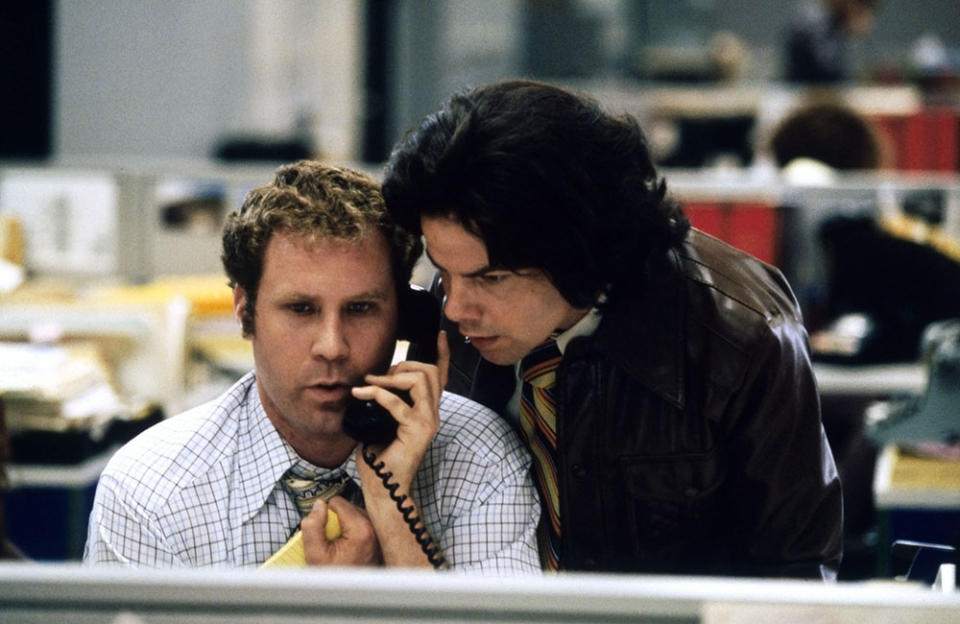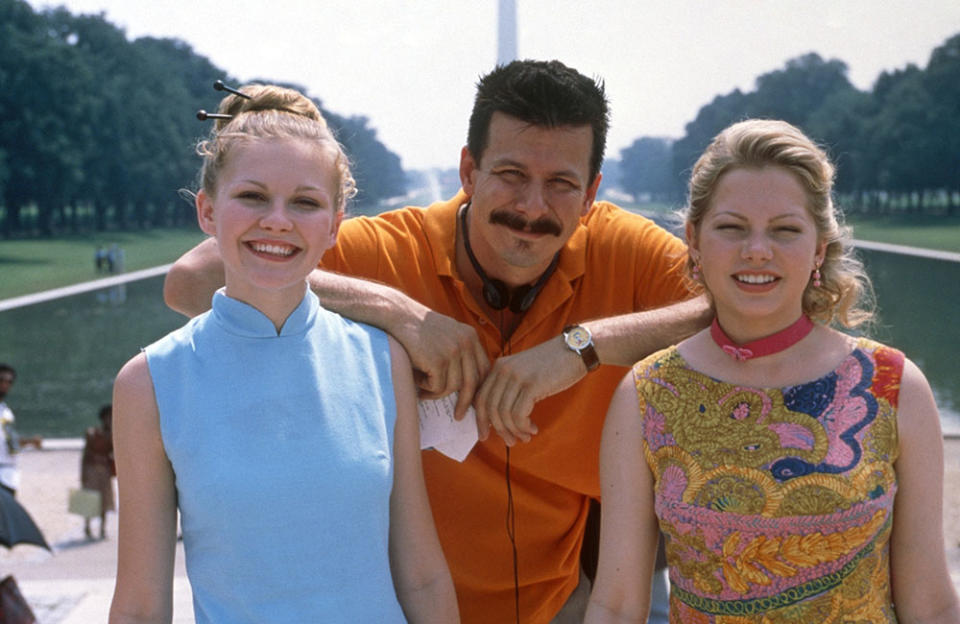‘Dick’ Director on Challenges of Making a Watergate Comedy and Whether It Could Be Done Today
- Oops!Something went wrong.Please try again later.
- Oops!Something went wrong.Please try again later.
- Oops!Something went wrong.Please try again later.
- Oops!Something went wrong.Please try again later.

Fascination over the mysterious identity of Deep Throat, the Watergate whistleblower, helped fuel the success of 1976’s Oscar-winning All the President’s Men, but it also led to another, far unlikelier project: 1999’s Dick, a bouncy comedy about two teen girls who unwittingly find themselves at the center of the scandal.
Dick focused on Betsy (Kirsten Dunst) and Arlene (Michelle Williams), a pair of 15-year-old best friends who wind up as President Nixon’s dog walkers and, somehow, become famed informant Deep Throat for Washington Post reporters Bob Woodward (Will Ferrell) and Carl Bernstein (Bruce McCulloch). (It wasn’t until 2005 that former FBI associate director Mark Felt revealed himself to have been the Post’s anonymous source.)
More from The Hollywood Reporter
Why Bret Baier Thinks There's a "Hunger" For "Finding Common Ground" in New Debate Series
Critic's Notebook: The Jan. 6 Committee Hearings Are Must-See TV
Capitol Riot Panel: Trump to Blame for Jan. 6 "Attempted Coup"
Ahead of the 50th anniversary of the break-in at Democratic National Committee headquarters on June 17, 1972, which led to Nixon’s resignation following his administration’s efforts to cover up its involvement, director Andrew Fleming — who co-wrote the Dick script with Sheryl Longin — tells The Hollywood Reporter that he remembers trying to come up with the right story to comment on what was, for himself, a formative decade.
“We kept trying to find the essence of what the ’70s was, but it was hard at that point in the early ’90s to really see the decade properly,” Fleming says. “And just as a joke, we said, ‘What if they were Deep Throat?’ And we just laughed — it really was just a joke. And then we kept absorbing that, and it just never went away. We just kept finding it amusing and told people about it. They said, ‘That’s hilarious. No one will ever make that movie.'”

Columbia Pictures/Courtesy Everett Collection
Fleming’s stock rose when he helmed the 1996 Neve Campbell-starring sleeper hit The Craft, opening the door to make a project of his choosing. Dick got his vote, but he discovered resistance as they took the project around town. “We pitched it everywhere,” he continues. “Everybody thought it was hilarious, and then they’d say, ‘Yeah, but we’re never gonna buy that.'”
Luckily, the final person who Fleming was scheduled to sit down with was Mike Medavoy, who had worked with the filmmaker on the 1994 indie drama Threesome. Medavoy, who Fleming refers to as “very politically savvy and a proper liberal Democrat,” was game to make Dick, regardless of how, well, tricky the process.
Fleming recalls that Dunst had impressed him in previous film work including 1994’s Interview With the Vampire. Ferrell, who had become a Saturday Night Live breakout after debuting in 1995 and starred in 1998’s A Night at the Roxbury, wanted to play Woodward, and then a key piece to the puzzle was in place with the casting of Williams, one of the leads of The WB’s hot series Dawson’s Creek, which launched in 1998.
“Michelle and Kirsten did a little session together, and they were just hilarious and adorable and good,” Fleming says. “It took a long time to get the script sold and together, and then [the film itself] came together very, very quickly because Michelle had to go back to Dawson’s Creek.”

Columbia Pictures/Courtesy Everett Collection
One of the team’s biggest challenges was finding the right performer for the title role, which ultimately went to character actor Dan Hedaya after a suggestion from a crewmember. “[Casting Nixon] was really a struggle, and it was just a stroke-of-genius suggestion because he ended up being better than anybody else we ever talked to,” Fleming shares. “And we talked to a lot of movie stars to play that part.”
The director has positive memories from the experience and praises Medavoy for aligning with the vision of resisting safe choices, even though not a lot of people saw the finished product, which Sony released on August 4, 1999. “It was not a hit on the box-office level, but the reviews were the best reviews I’ve ever gotten for anything,” Fleming says of the movie that earned $6.3 million worldwide ($11 million today). “So it was good and bad. I was just so happy I got to make the movie because I love the movie. I really do. It’s one of the favorite things I’ve ever done.”
Fleming admits that audiences are not “beating down the doors for political comedy” but that it’s still worthwhile to make such films. He says that Watergate, for as disheartening a moment as it was, felt rife for satire, which he’s not sure could be said for the Donald Trump presidency.
“Once we started researching it, it read like a comedy — I mean, the Committee to Re-elect the President was called CREEP,” he explains. “The transcripts of the tapes are just astonishing because Nixon was a car crash of a human being: a racist and an anti-Semite and a homophobe. But the tapes and the things he said are darkly hilarious at times — and scary at others — but all of it paled in comparison to how bad things got with Trump. I don’t know what kind of movie you make out of the Trump presidency. I really don’t.”
Fleming has heard that his film was seen by all the people involved in the scandal who were still alive at the time — “That alone is gratification,” he says — and remembers that Bernstein once told Longin that he found the film funny. Fleming has continued to work steadily and is currently in Europe for Netflix’s Emily in Paris as a director and executive producer. But he’s found it a challenge to figure out what remains on the table these days to lampoon.
“People still want to laugh at things, but it’s harder to navigate what’s OK to laugh at because the world has gotten so dark,” he says. “It’s always about pushing boundaries when you’re making comedy, and how do you push it when the world is already whacked-out? It’s just much more complicated now.”
Best of The Hollywood Reporter

